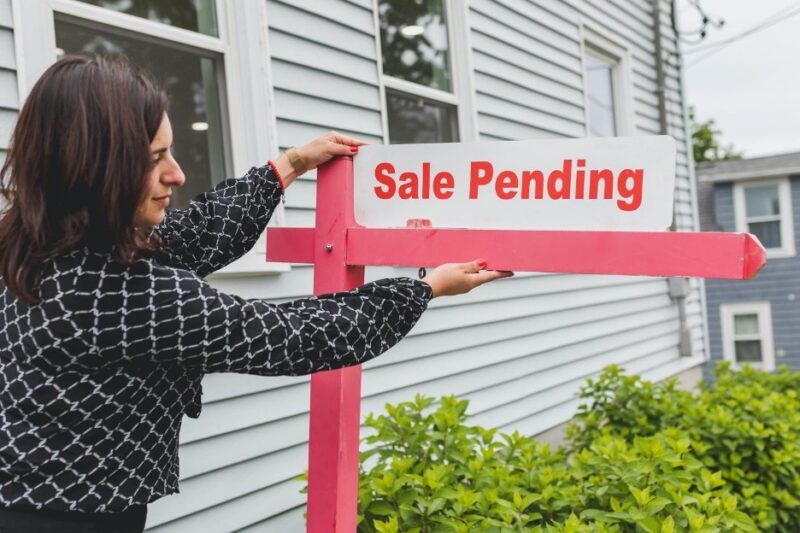Article Excerpt
It's not always simple to sell your house, but there are times when it's necessary. Selling your home could be the best option if you’ve run into financial trouble, no longer like the neighborhood, are going through some family or job changes, or all of them.
Here are some scenarios where you might want to consider it.
- Family is getting bigger or smaller: It might be time to sell the house if you're about to have your first child, expand your family with a second or third, or if your older children are moving out. You need the sale money to accommodate the changes.
- Not liking the location: When the traffic in your neighborhood gets worse, or a lot of construction holding up your morning commute, or difficult accessibility to schools and highways might be the reasons to sell your home. You use the money to purchase a new property of your choice.
- Change of employment: You're switching jobs, or the employer is moving offices, or you can no longer afford your home because of wages reduction, or you need to reduce your spending because you lost your job might necessitate a sale as well.
- Going to retire soon: If you’re getting closer to retirement, selling your home can offer many benefits. Moving into a smaller home can reduce both your physical and emotional stresses.
- Fed up with the upkeep: If you're fed up with keeping your house maintained and repaired, you might want to sell it. Selling the property and relocating to a less demanding home might be a good choice, whatever the reason.
- Desire a brand new or updated home: If you do not like your home’s outdated features and design or simply want to build your dream home from the ground up, you could sell your house and buy a new one.
Best Ways to Sell a House in Today's Market
Customers today is picky and cautious. They demand guarantees, no-cost upgrades, outstanding customer service, etc.
As a seller, you have plenty of selling options nowadays because of technology and the persistently changing real estate market.
You can continue using an agent, a tried-and-true strategy, or try cutting-edge strategies like iBuyers and trade-in programs, guaranteeing to save you money, time, hassle, or all three.
Some people don't realize they can sell their house as-is its current condition, without making costly repairs. Technically, when a real estate agent lists an as-is house sale, the owner is selling the home without repairs or improvements before the sale.
Again, minor renovations positively impact a property's resale value. As a general rule, more recent, trendy renovations are more likely to increase property value than older renovations.
Each approach to selling your house has benefits and drawbacks. The best option for you will depend on your real estate expertise, the price you hope to get for your property, and some other factors. Find out what choices you have.
Option 1: A Traditional Real Estate Agent
Using a local real estate agent is the most popular home-selling method, used in 90% of sales. The agent will market the house, list it, and schedule showings with other agents and prospective buyers.
Additionally, they will support you in assessing offers, negotiating terms with the buyer, and ensuring the transaction is successful. They might even join you for your closing appointment.
Traditional real estate agents typically use a commission-based fee model. The seller's agent is paid a percentage of the sales price, which they split with the buyer's agent.
Option 2: Non-Traditional Ways
A real estate agent's commission takes up a significant portion of the home sale-proceed. Accessing the Multiple Listing Service (MLS) costs too.
However, you can save money if you undertake particular tasks during the selling process. Here are some non-traditional ways to sell your house that might be profitable.
- Selling Home Yourself: FSBO, or "for sale by owner," is always an option. Approximately 7% of sellers pick this choice.
You'll need to market your home to potential buyers, perhaps by listing it on Zillow or another FSBO-focused website, and then schedule showings with the buyers' agents.
You must also handle the negotiations, contracts, and other aspects of the sale on your own—or with the assistance of a real estate lawyer.
FSBO could be the best choice if you are very familiar with the sale procedure, comfortable with home pricing and marketing, and not in a great hurry to sell. - Trade the Home In: Working with a company that will let you "trade-in" your property in exchange for your next one is an option if you already own a home but want to sell it and buy a new one.
It's best to trade up if you want to buy a new house after selling the one you already have, avoid the hassles of listing, showing, and closing on your previous residence, or if you live in such a market where the trade-in programs are offered. - Online Auction: Property owners can advertise their homes on auction websites. Although the site charges a commission, costs are typically lower than those of a real estate agent because fewer services are offered.
Closing sales may be scheduled as soon as a week after the listing expires, though rules differ from site to site and sale to sale. - An iBuyer: iBuyers are online businesses that buy houses directly from their owners, typically through a cash offer. They are a relatively new option for home sellers.
You will receive an offer immediately or within a few days after providing information about your property on an iBuyer website. Select a closing date and get your money if you accept it. You can seek other offers or list your home on the open market if you don't.
These sales still do not happen frequently. In 2021 less than 1% of sellers used an iBuyer.
Does Hiring a Lawyer Aid in Home Sale?
If you decide to sell your house on your own, without a real estate agent, you might benefit from legal representation.
Despite saving money, many owners need help comprehending and completing the extensive paperwork needed for sale.
A real estate lawyer can assist you in closing the deal, ensuring that the sale is completed per the contract and in compliance with all applicable federal, state, and local real estate laws.
How to Sell Co-Owned Property
Co-owners are two or more people who purchase or inherit property together. In such cases, homes are usually held as common or joint tenants. Tenancy in common typically exists by default if ownership is not specified.
Co-owners must communicate and come to a mutual understanding before selling a home. Otherwise, the court may step in to order a sale and divide property when disputes arise over a home.
Top Reasons Your House Isn't Selling
- Your house might not be as appealing as the nearby homes that are comparable to and competing with yours. To attract buyers, make your home as tidy, uncluttered, and impersonal as you can.
- You and your agent might not be marketing your home enough or have picked the wrong times to sell it. Changing your agent and revisiting sales strategies could help out.
- You might not have used enough high-quality photos or videos in the multiple listing services (MSL) database that the real estate agents share. It needs a better online profile.
- Overpricing might be an issue. You and your agent should be able to determine the asking price based on the feedback you might’ve received.
Some Non-Traditional Tactics to Sell Your House
Selling is definitely a tough job. If you're searching for new, innovative approaches to selling a home, the tactics listed below can help you a smarter way out.
- Use social media
You can invite many potential buyers into your for-sale home using Instagram, Facebook and YouTube to host virtual, seller-guided tours.
Simultaneously you may invite your friends and followers to share the post with their own networks or to interact with it by liking or commenting. - Offer incentive
You could offer to include all of the window treatments or make certain flooring or landscaping improvements as incentive to encourage homebuyers.
If there is a reward you feel confident providing, it might motivate prospective buyers to move forward quickly. - Create a few mementos
Consider making your own leave behind that shares information about the property that only you would know—such as your preferred local restaurants, hiking trails, and farmers market vendors—instead of relying solely on the literature your realtor will most likely provide to buyers. - Host an open house
Open houses are typically held at most homes that are for sale, but homeowners can also think about holding their own.
Conclusion
With snacks, drinks, door prizes, or giveaways, you can use this as an opportunity to promote your home to your friends' friends.
Visitors might be even more enthusiastic about the chance to make an offer after seeing how much fun your home is and how simple it is to host parties there!





